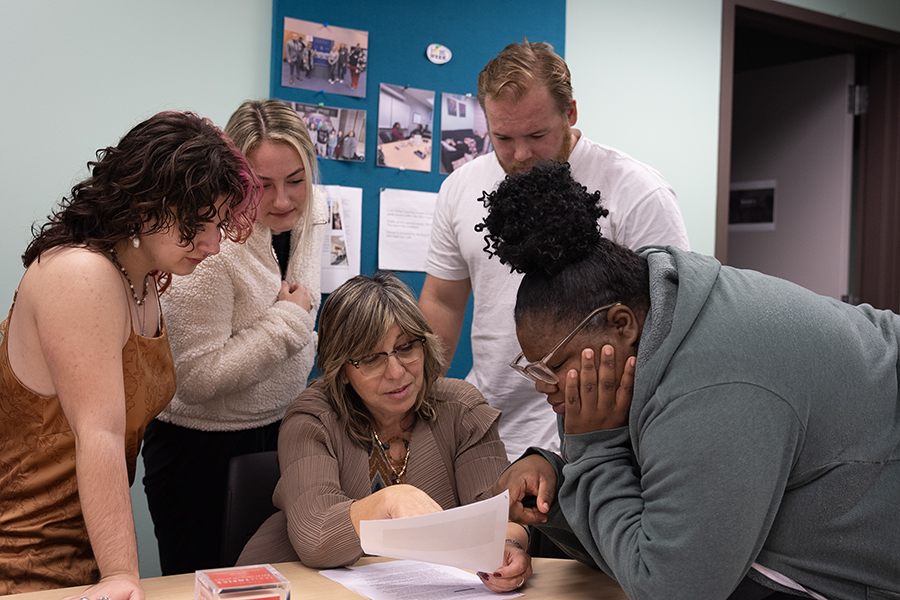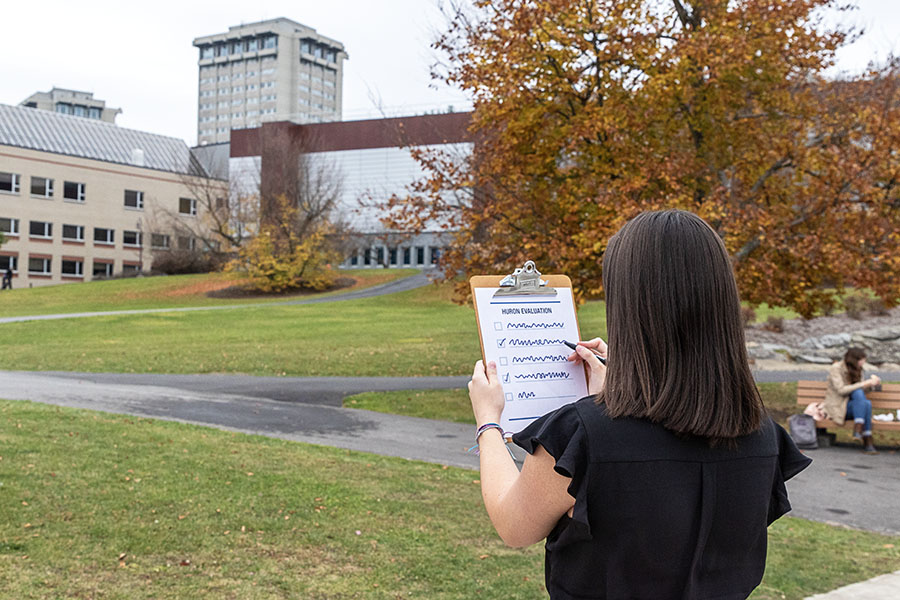A team of students from the undergraduate research team in the Department of Psychology at Ithaca College released a survey to identify disparities between how students of color and their white counterparts utilize mental health services on campus.
The group is led by Judith Pena-Shaff, professor and chair of the Department of Psychology, who said that the survey — titled “Use of and Barriers to Mental Health Services at Ithaca College” — aims to gather information from students of all backgrounds and the main focus is on the results collected from students of color. The survey keeps students’ identities anonymous and asks questions about experiences with mental health services both on campus and in general, as well as participants’ thoughts about personal mental health and the stigma surrounding it. The team aims to collect at least a thousand responses.
“I think, when you are part of a marginalized group that has been this subject of -isms, you have more mistrust toward certain institutions, and one of them is mental health services,” Pena-Shaff said.
The idea for the project came when the team read research articles detailing the utilization of mental health resources by college students of color and possible causes for the hesitance they show when it comes to reaching out.
Senior Ashanti Ford is a member of the research team and said her passion for the research came from her own struggles with mental health and her desire to help students in similar situations.
“There were a lot of times where I felt like I was drowning and I didn’t know where to look,” Ford said. “I wanted to know if other people felt that way and what I could do to help others overcome that.”
Ford’s feelings are not uncommon when compared to other students at the college. 67% of students at the college agreed that they knew where to seek help for their issues on campus but only 26% of those students identified as people of color, according to the Healthy Minds Study conducted in winter 2021.
Pena-Shaff said there are multiple factors that contribute to this disparity, even when services are free of charge.
“Personal and mental health stigma, general mistrust towards mental health services, lack of knowledge about these services on campus and cultural factors have been cited as possible factors that affect students of color’s access to and use of mental health services on campuses,” Pena-Shaff said.
Ithaca College’s main free mental health service is the Center for Counseling and Psychological Services, also known as CAPS. Although CAPS offers a variety of services, Ford feels that the typical biweekly therapy schedule is not enough.
“I really loved my therapist,” Ford said. “Just going to be able to go to her and talk to her [was great,] but I felt like I needed more and I couldn’t get that.”
In addition to the usual schedule, Ford believes that another big issue for CAPS is the small number of counselors they employ when compared to the large number of students they need to serve.
“It’s understaffed,” Ford said. “So how are they going to give adequate care no matter how much they try? How can they give us the adequate help that we deserve?”
These are not the only factors preventing the college’s students from seeking help from mental health services. Students cited factors like not having enough time, difficulties finding available appointments or preferring to deal with their problems alone as barriers, according to the Healthy Minds Survey.
Brian Petersen, director of CAPS, said that although the CAPS staff already understands many of these concerns and barriers, the results of the research team’s survey could be useful in properly addressing them.
“Hopefully it’s going to reinforce the things that need to be paid attention to,” Petersen said. “[We want to know,] what is the experience of a student that is coming from a different background … who may have had mixed messages about mental health and may have had mixed messages about what counselors do?”
Peterson said questions like these are especially important now while CAPS is looking to hire a new counselor to further meet the needs of students on campus, specifically those of students of color.
“We’re very committed to creating a welcoming center for all students,” Petersen said. “We’re advertising right now to hire a new 10-month counselor, and [increasing diversity of staff is] very related to that.”
Pena-Shaff said the results of the survey will be released sometime in December or January 2024 and will be transferred to a poster to be presented by the team at the 2024 New England Psychological Association conference. The results will also be shared with other important areas of campus, like CAPS and the President’s Cabinet.
Petersen said he is optimistic that the research will lead to helpful results for the mental health services on campus.
“I think what will be really valuable and interesting about this study is that that’s data from students saying this is what we need, this is what our experience was,” Petersen said. “That’s when you can start building meaningful change.”
Ford said she hopes the research will lead to greater awareness of the barriers to receiving mental health care and spread a positive message to those who may be experiencing such issues.
“I want people to know it’s okay to feel a certain way,” Ford said. “Other people feel the way you do and there shouldn’t be a stigma around how you feel.”










Harold A Maio • Oct 19, 2023 at 11:53 am
… thoughts about personal mental health and the stigma surrounding it.
At what point in your life were you taught “a stigma surrounds it”? Do you recall the ease with which you accepted it? The ease you continue to have in accepting it? Can you begin to examine that acceptance with unease?
Harold A Maio